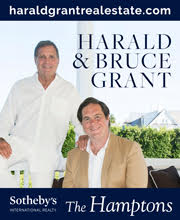The Candidates 2021: Ray McGuire for mayor
Earlier this month I ran short profiles on the seven candidates for our local City Council seat, along with their responses to a very long questionnaire based on reader questions. I sent the same questionnaire to seven mayoral candidates. Only two responded. The first response is here, from Ray McGuire, along with a quick fact sheet and a couple relevant links.
Last gig: head of global corporate and investment banking at Citigroup
Formerly: Harvard undergrad, JD and MBA; board member at Citi Foundation and De La Salle Academy
Born in: Dayton, Ohio
Lives in: the San Remo, on Central Park West
Worth reading: How Ray McGuire Would Run New York; Five things to know about Ray McGuire
SUPPORTING LOCAL BUSINESS
1. Do you have any solutions for protecting small business from the pressures of rising real estate costs? (tax abatements for landlords who keep mom-and-pop stores?)
I will create a menu of financial relief options that can be made available to small commercial property owners in exchange for forgiving or lowering rent for small business tenants, or providing early lease breaks, subleasing, and other tenant protections. I would encourage building owners to renegotiate leases to help tenants stay afloat, as some have already done, and I would be open to creating incentives to further support that.
2. What is your proposal or attitude towards the future of Open Restaurants post-pandemic?
I will preserve the Open Restaurants initiative post-pandemic. The continuation of outdoor dining and open streets is a great way for New Yorkers to engage with their local communities and businesses, and can help create a more liveable city. Expanding access to outdoor dining will turn public space back over to the people for multipurpose use.
3. Do you have any ideas for addressing retail vacancies? (vacancy tax? Incentives?)
I will fast-track new businesses and pair that with incentives and subsidies to ensure that commercial vacancies get filled by viable, community-centered businesses. Unlike other approaches, my plan provides direct intervention to small businesses in the form of: wage subsidies to cover the salaries of workers at businesses that have been hardest hit by the pandemic; allowing affected businesses to keep one year of sales tax receipts; waiving permit fees; providing rent relief; and creating a new Comeback Bank Initiative for long term, low interest loans. I will also use zoning, local BIDS, and other tools to align our vision throughout the City.
4. Do you have any solutions for limiting the regulations and red tape required to both start and maintain small business?
My administration will head up a Red Tape Commission to identify ways to reduce burdensome regulation and unnecessary costs and delays — top to bottom — across all agencies. I will also create a “shot clock” for the small business permitting process, requiring City agencies to complete reviews and inspections for most small businesses within 180 days. Additionally, I will build a true one-stop online portal that will streamline the application and inspection process and allow small businesses to access support from across my administration. To alleviate government costs, I will allow small businesses the opportunity to cure more violations before having to pay fines.
QUALITY OF LIFE
1. Do you have any solutions to the helicopter traffic that often plagues the neighborhood and others?
I will meet with stakeholders and advocates to explore ways to effectively reduce helicopter traffic.
2. Do you have any solution for making construction sites be better neighbors?
Construction projects must be inspected by the Department of Health beforehand to avoid safety risks to residents nearby. My administration will tackle noise or traffic complaints due to construction sites on an individual basis to ensure that they do not disrupt residents’ quality of life.
3. There is hardly a block in this neighborhood that does not have a sidewalk shed, some of which have been up for more than a decade. Do you have any solutions for requiring landlords to finish projects within a certain time frame so that they can be removed?
We need a top to bottom review to streamline the public construction contracting process. I will identify and wholly remove nonsensical and complex requirements that raise the prices of the most simple procurements and lengthens construction. I will also work with private contractors to expedite projects by issuing permits efficiently and enforcing reasonable time frames.
4. Do you have solutions for better street cleaning?
I will work with Business Improvement Districts to expand efficient collection and sorting of trash in commercial areas, building on the city’s Clean Curbs pilot program. I will also increase the use of zero waste design in new building developments, using innovative approaches to the design of waste disposal systems to increase recycling of all kinds.
5. The proliferation of e-bikes and electric scooters has been a challenge for this neighborhood. Do you have a solution?
My administration will explore ways to keep pedestrians and cyclists safe on our streets, and will enforce speed limits for e-bikes and electric scooters.
6. The NYPD has consistently used its power to close public spaces and amenities, especially during the pandemic. Do you have a proposal for this issue?
Public spaces should absolutely stay open, especially since they have provided a safe haven for many New Yorkers during the pandemic. Unless there are credible safety precautions, I will ensure that these outdoor spaces are open to the public.
PEDESTRIAN SAFETY
What are your thoughts on expanding pedestrian-only streets? Do you have other proposals that would address pedestrian safety?
The city closed 100 miles of streets for traffic to make space for public recreational use. Open streets drove New Yorkers to use their street space in much greater numbers. I would consider expanding this program and would install semi-permanent seating and barriers. I will also focus on equity, so that open streets are distributed fairly in all neighborhoods.
THE HOMELESS POPULATION
1. Do you have any new solutions for addressing those people who refuse to go to shelters?
We need to ensure that people experiencing homelessness have tailored support services. I will provide families with childcare and reliable wifi while also giving adults access to mental health and substance abuse treatment, and job training. I will leverage my management experience to simplify the bureaucracy and streamline services across agencies. We should establish expectations for service levels and outcomes at shelters and hold providers accountable.
2. The Financial District is also being asked to take on several new homeless shelters. What are your thoughts on residents’ opposition to this and their concerns?
We must create a pathway to permanent housing by shortening the time that people are in shelters and reducing the number of shelters needed, since they are not meant for long term use. I will consider all options to accomplish this including expanding affordable housing stock through quality basement apartments, accessory dwelling units, and communal housing. I will also provide rental subsidies, legal assistance and advocate for additional section 8 vouchers from the federal government. In the meantime, I will have Community Boards, local development corps, and community based organizations come up with their own strategy for placing shelters, with the support of city staff. We can use that to inform where we build, but every community must do its part.
CRIME
Many readers feel there has been a rise in crime since the pandemic (and statistics support that) and not much has been done about it. What is your approach to community policing?
Our city is facing a disturbing surge in crime. Murders and shootings are up sharply. My approach to public safety is to tackle gun violence head on, assure a better quality of life for all New Yorkers — and at the same time to tackle the root causes of so much of the current disorder. I will shift resources within the NYPD budget to increase the number of officers focused on seizing illegal weapons and preventing, investigating, and prosecuting gun crimes, integrated into broader community policing efforts in the 10 precincts suffering from the highest incidence of violent crime. I will also invest in community-based crisis management programs in these neighborhoods, and partner with local, state and federal prosecutors to crack down on the flow of illegal guns into our city. In addition, I will launch Emergency Social Services, a citywide 24/7 network of mental health, drug abuse, and homelessness specialists that will replace police intervention for non-criminal behavior. These teams will provide rapid response to help individuals in crisis before they become a danger to themselves and others. We will also ensure individuals receive the long-term mental health and substance abuse services they require, rather than abandoning them after the immediate crisis has been addressed.
HOUSING
We would like to hear your thoughts on the status of affordable housing downtown and in our zip codes.
I will expand eviction and foreclosure legal assistance and increase that amount the City currently spends on rental subsidies and vouchers from approximately $130 million up to $400 million to keep more New Yorkers, who would otherwise face eviction in their homes and help others exit the shelter system for good. I would increase the amount of housing in NYC by 10 percent – or 350,000 units – over the next eight years. This will include new rent-regulated housing that will be affordable to New Yorkers at a range of incomes; market-rate housing that will help meet demand and drive down prices, including in neighborhoods where market rents are accessible to middle-income New Yorkers; and existing space that can be activated for affordable residential dwellings.
AGING
What solutions for seniors in housing, mobility and access to basic needs can ensure that downtown is a place that residents don’t need to leave as they age?
I will dedicate up to $500 million in city capital funding to create affordable housing for low-income seniors. This housing will be equipped with on-site services New Yorkers need to thrive as they age – enough to build roughly 3,000 new homes per year, double the current rate of production. To do this I will prioritize older New Yorkers for rental assistance targeted at single adults or childless couples – to keep them in their homes and avoid homelessness in the first place.
TAXES — COOP AND CONDO FEES
Homeowners here are concerned about rising taxes on condos and coops – which is making it harder and harder to keep apartments here affordable.
We must address inequalities in our economic system that drain resources from working New Yorkers. This includes an inefficient property tax system that places an unfair burden on middle class and working class homeowners. Decades of inaction by our current political leadership have forced low- and middle-income homeowners to pay a higher percentage of their home’s value in taxes, compared to New Yorkers in more affluent neighborhoods. This issue can especially impact Black and brown homeowners. A home worth $150,000 in Crown Heights currently has the same exact tax bill as a home in Carroll Gardens that sold for $9,000,000. That’s because our outdated property tax system does not account for the gentrification we’ve seen in so many neighborhoods around the city. I will do what it takes to overhaul the property tax system and make sure that every neighborhood pays only their fair share, saving hard-working families thousands of dollars each year while asking wealthy property owners to pay a little more.
CONGESTION PRICING
Will you urge the MTA and the governor to put it in place? Would you include carve-outs for downtown residents or other groups?
More than 700 thousand cars travel into Manhattan Below 60th street every day. Congestion pricing will raise over $1 billion annually and take a projected 59,000 cars off the street daily. I support congestion pricing not only as a way to raise revenue for transit. but also because it has the added benefit of reducing the number of cars that are on the road and thus lessening emissions. However, we need to make sure the MTA uses this revenue well. It can not go to waste and bloated contracts, which we have too often seen in the past. If we want to move people out of cars we need to give them better quality, cleaner and more reliable transit options. Any congestion pricing revenue should go directly to achieving those goals. Finally, we want to look at ways to build on congestion pricing – to address the exponential increase in deliveries from e-commerce companies and make sure they are paying their fair share for use of the city’s roads.
BOROUGH-BASED JAIL PROPOSAL
What is your stance on the borough-based jail plan for White Street?
My public safety plan focuses on crime prevention, and helping keep people from interacting with the criminal justice system in the first place. That said, there are individuals accused or convicted of violent crimes that need to be separated from society, for the safety of the community as well as their own safety. My goal is to create facilities that are focused on rehabilitation and preparing these individuals to reenter society, and I would need to evaluate the current administration’s plan to determine whether it does that as effectively and efficiently as possible.
SCHOOL CHOICE
What is your opinion on school choice? What proposals do you have to address inequities? Or not?
Truly integrating schools will take more than shifting enrollment policies – we need to address fundamental issues like residential segregation. My belief is that we urgently need to provide every child in each zip code real access to quality education. I would focus on magnet programs, creating new schools of choice, and opening up slots in schools that are not overcrowded to children from out of district.
PRESERVING HISTORIC DISTRICTS
What is your opinion on preserving historic districts?
My administration will balance the need for more housing and economic development that also preserves the integrity of historic neighborhoods by engaging with community advocates and stakeholders.
PARKING – PLACARD AND RESIDENTIAL
How do you plan to deal with the abuse of placard holders (real and fake ones)
As mayor, I will aggressively enforce placard abuse by deploying a DOT placard enforcement unit. These efforts will be supplemented with an increase in penalties and a strict three-strike policy for misusing a placard that culminates in revocation.
Do you have any solutions for residential street parking?
We need to rethink the way we use our streets. Right now they are not serving most New Yorkers well – not residents, small businesses, drivers, pedestrians, or cyclists. My Department of Transportation would evaluate our streets on a neighborhood by neighborhood basis with the goal of increasing shared and open space, alleviating traffic and congestion, reducing double parking by delivery vehicles, and making sure e-commerce and delivery companies pay their fair share for the use of our streets and sidewalks.















He is definitely worth taking a look at. Its a crowded race and its worth it to take the time to look at every candidate.
McGuire’s congestion pricing answer is exactly right: that c.p. is it’s necessary and beneficial, and a gigantic first step in reconfiguring NYC’s streets and transportation. Though he dodged the question about carve-outs, his implicit refusal to endorse them is the right way to handle that hot potato, in my opinion.
Dodging questions about carve-outs is exactly why I would not support a candidate. As a resident, I believe being charged every time I drive out of my garage or come back into it is unfair. Will there be carve-outs for “official” vehicles? How about the FDNY and NYPD personal cars?
Do you drive to New Jersey or Brooklyn or the Upper West Side every time you drive out of your garage?
Mostly over the Brooklyn, Manhattan or Williamsburgh bridges. I do very little local driving. So yes it would be a burden pretty much everytime me, my husband or kids use the car it is to leave the city. Which is a couple of times a week. Within the city we use public transport.
Sounds good on many points, but a bit too evasive on the Chinatown jail project.